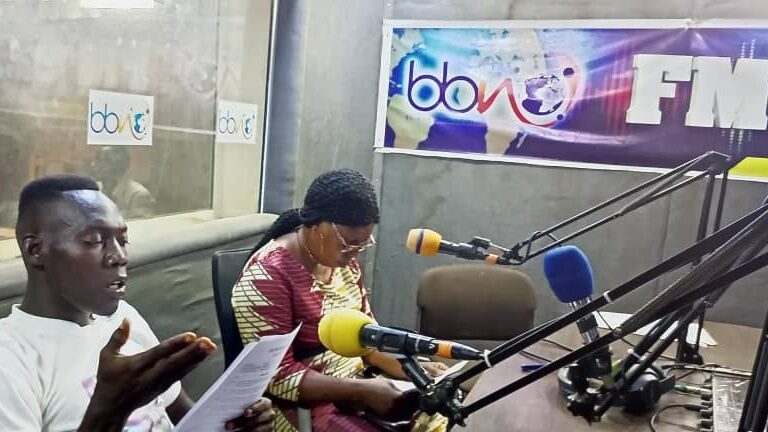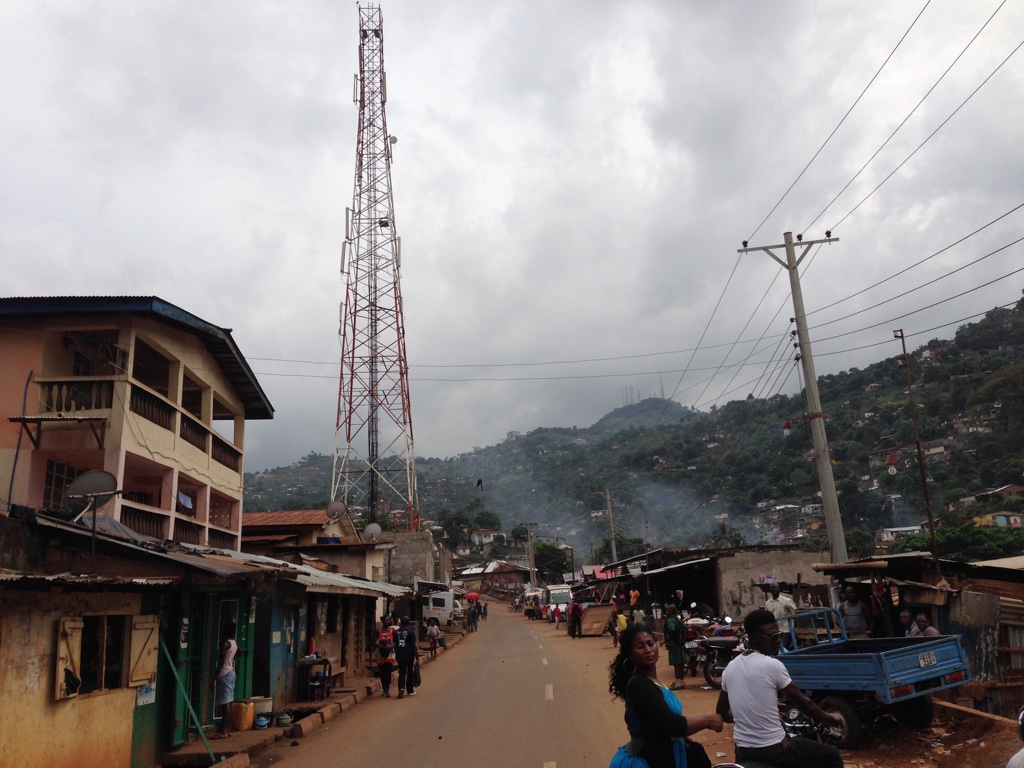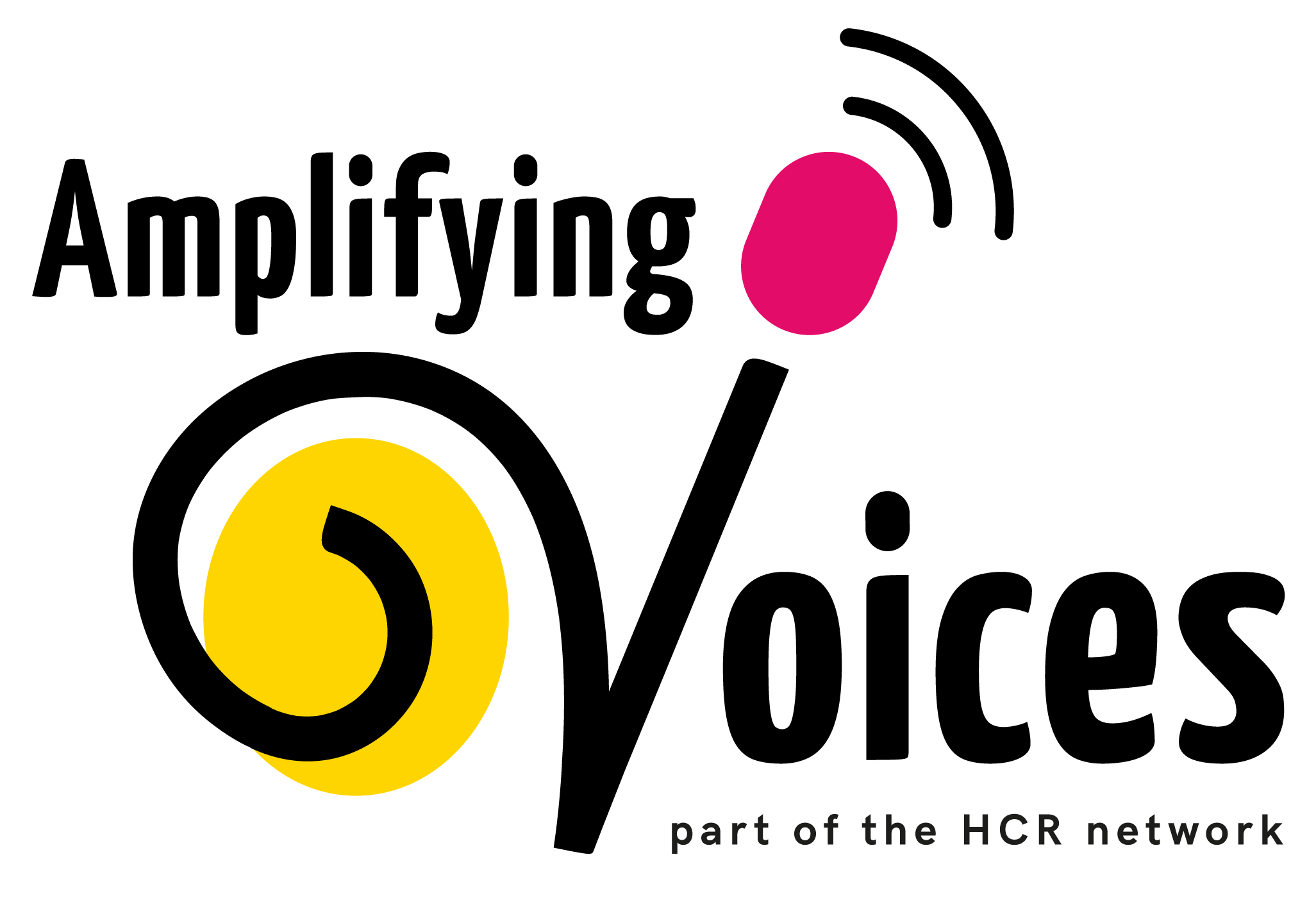
Radio drama in Sierra Leone
Welcome to Saltville a small, bustling neighbourhood in Sierra Leone, with its compact tin-roofed dwellings and thriving market, home to a lively line-up of characters.
There’s Bakar, the opinionated local carpenter and talented musician, who often feels free to dispense good advice, especially during the Covid pandemic. Orfoe is Saltville’s self-important chairman of the community bike riders who is always up for an argument; and then there’s Gibo, a young-man who’s had many so many setbacks in life he navigates his way on the street by getting hold of drugs from any place he can.
Bakar, Orfoe and Gibo are just some of the many characters in Freetown’s popular radio drama, which explores what happens when people make good (and bad) decisions about health and life issues. Although Saltville only exists on the airwaves of our radio partner BBN, the plots for the drama come directly out of a community listening process in Freetown, known as ‘SALT’.
The 15 episode radio drama was designed not only to reflect the real challenges that people have been facing during the pandemic, but to stimulate further community conversations.

Street scene in Freetown, 2019
One enlightening feature of SALT community listening, is that a single seed question can lead to multiple different stories and topics that community members or households want to discuss. The SALT volunteers asked people they visited about learning to live with Covid and heard stories that wove this theme into different scenarios of real life in Freetown. When it came to plotting the radio drama, anonymised stories collected from these SALT visits were given to the producers. The producers then used the information to develop a plot that depicts specific interest groups or individuals relevant to the community. Radio drama listeners have been shown to be more likely to consider new behaviours or attitudes if they identify strongly with the characters (Read this paper for a detailed study). So while the characters are fictional, their stories reflect stories of real community members.
Click play on the Audio Player below to hear a brief clip from Episode 1 of the radio drama which is in Sierra Leonean Krio. This scene introduces the theme of Covid denial, interwoven with different views about self-employment.
If you don’t speak Krio, (or don’t have time to listen now), here is a synopsis of the scene,
Bakar is working on refurbishing a set of chairs and singing a nice song. A Councilor who is on his way to council comments on how good Bakar is at carpentry and singing. He jokingly tells Bakar that he should give up carpentry and become an artist so that he will become famous. Bakar tells him that he prefers to do his carpentry and if there is any luck for him, he will record some songs to see how people will receive them but he will not put carpentry aside. Councilor laughs and says Bakar is very smart and leaves. As he leaves, Gibo arrives looking and sounding as if he is high on drugs. Bakar stops working and ask him why after all the advice he has been giving him, he is still on drugs. Gibo denies and says that it is the system that is frustrating him as if those in authority do not care about the common man. Bakar tells him that he is always blaming others but yet still he does not make any effort to find some work to do. Gibo gives his opinion that there are no jobs for the youth to which Bakar responds by saying Gibo can learn a trade just like himself. He adds that he is always advising him to take good care of himself but even with Covid around, he does not take any precautions. An argument breaks out with Gibo saying that Covid does not exist. Orfoe comes along and meets them arguing. he immediately sides with Gibo saying that Covid does not exist and that Bakar always acts as if he knows everything when he does not know anything else but carpentry. Bakar retorts by asking Orfoe to tell him what he knows and Orfoe replies that he is the chairman of the bike riders in the community and therefore, Bakar should talk to him with respect. Gibo ends the scene by telling them to forget about the argument, after all he is the one who has the argument with Bakar and not Orfoe.
Later in this same episode, the writers also introduce several other characters in a series of scenes about street hygiene, the use of the health clinic, malaria prevention, and cooperation among religious leaders to fight against covid-19. Each scene addresses the life situation, while also introducing questions about Covid into the mix.
In this series there is an honesty about the dilemmas people face when confronted with controversies about Covid vaccines which was a major problem in Sierra Leone during the height of the pandemic (e.g. see this IGR Sierra Leone report on vaccine uptake and hesitancy). The radio dramas don’t provide neatly packaged solutions but provide information from respected sources woven into examples of difficult discussions that allow community members to make their own informed choices. Radio drama creates space to explore – and an appetite to do so.
SALT is a form of Ting listening in which teams of community volunteers visit households and neighbourhood meetings to learn from community stories and affirm local strengths. The letters S, A, L, T are used during team training workshops to stimulate conversation around words that illustrate SALT-y ways thinking and working … e.g. strength, story, support, affirm, attitude, appreciate, learn, listen, team, transfer. Visit Affirm Facilitators to learn about other communities using SALT approaches.
